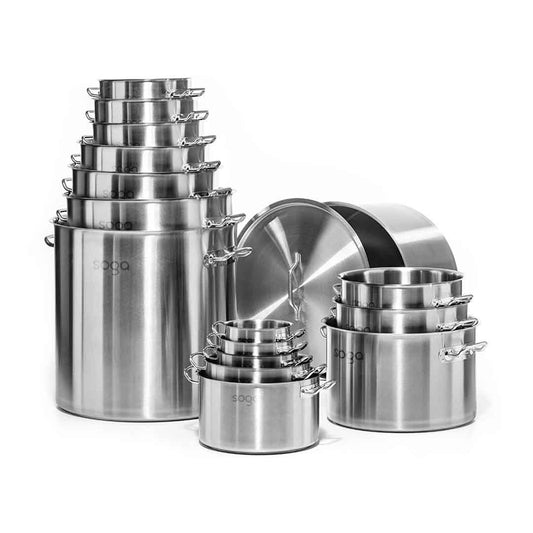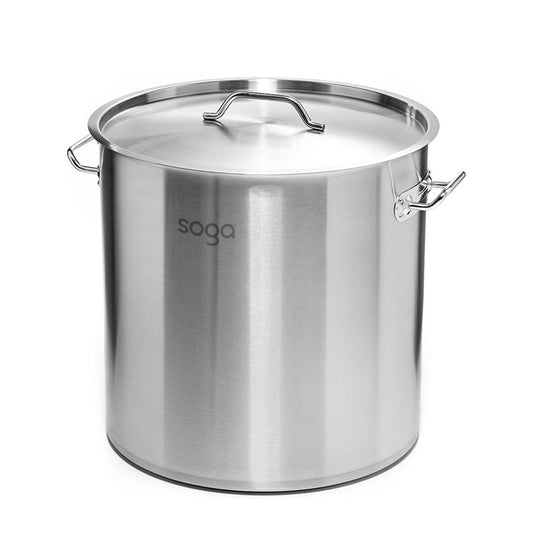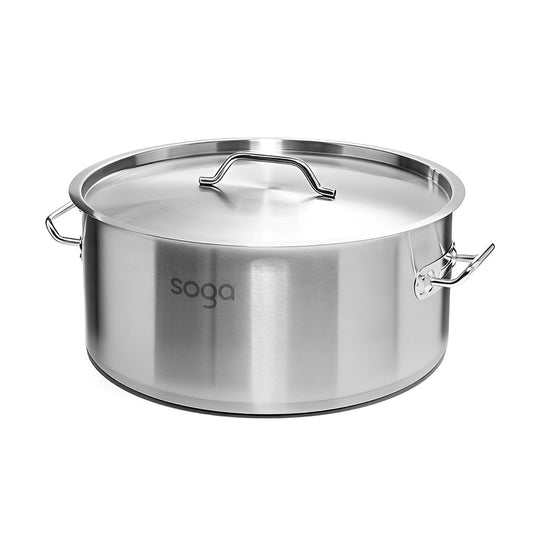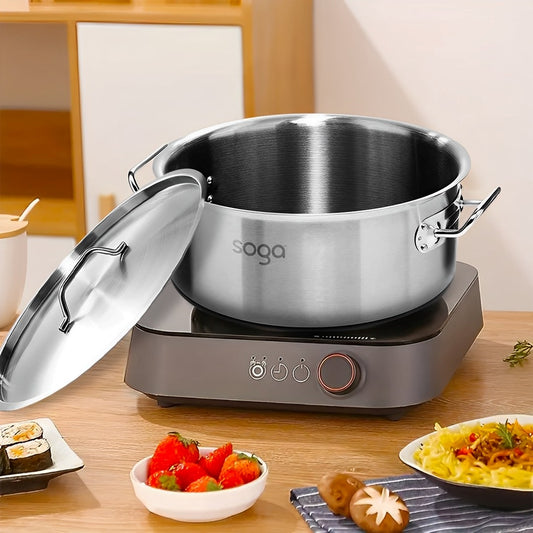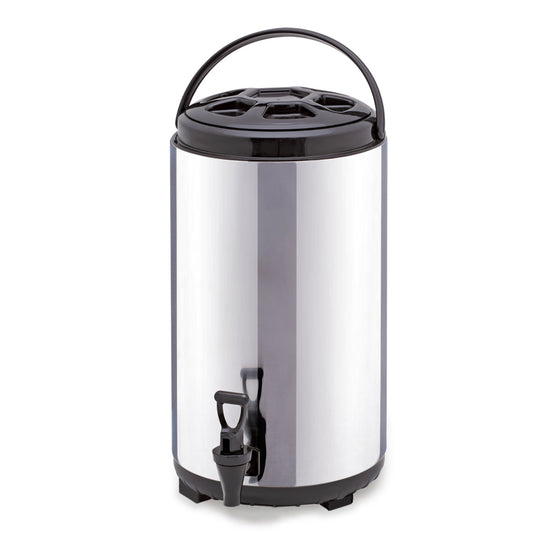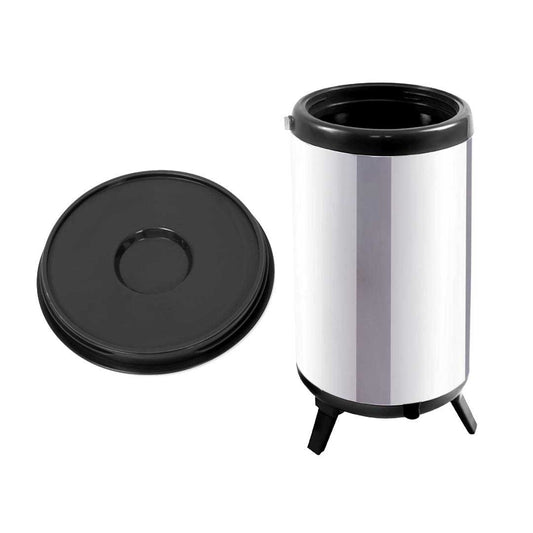Cleaning and Maintaining Your Kitchenware: Tips for Longevity

Investing in quality kitchenware is essential for any home cook, but maintaining these tools is equally important to ensure they last and perform optimally. Proper care and cleaning not only extend the lifespan of your kitchenware but also ensure safe and effective cooking. Here are some practical tips to help you clean and maintain your kitchenware for longevity.
1. General Cleaning Tips
Use Mild Detergents
Harsh chemicals can damage the surfaces of your kitchenware. Opt for mild detergents and avoid abrasive cleaners unless specified by the manufacturer. Gentle cleaning agents are effective in removing food residues without causing wear and tear.
Avoid High Heat
Exposing your kitchenware to high heat, especially non-stick pans, can damage the coating and reduce their effectiveness. Always follow the manufacturer's instructions regarding temperature limits.
Hand Wash When Possible
Even though many kitchenware items are labeled as dishwasher-safe, hand washing is often the gentler option. The high heat and strong detergents in dishwashers can degrade materials over time. Hand wash with warm water and mild soap to preserve the integrity of your tools.
2. Maintaining Non-Stick Cookware
Use Non-Metal Utensils
Metal utensils can scratch and damage the non-stick coating on your pans. Use wooden, silicone, or plastic utensils to maintain the surface and ensure it remains non-stick.
Avoid Cooking Sprays
Cooking sprays can build up on non-stick surfaces and become difficult to remove. Use oils or butter sparingly, and apply them with a brush or paper towel to maintain the pan's non-stick properties.
Regular Cleaning
Clean non-stick pans immediately after use to prevent food from hardening on the surface. Use a soft sponge and avoid abrasive scrubbers that can damage the coating.
3. Caring for Cast Iron
Season Regularly
Seasoning your cast iron skillet involves coating it with a thin layer of oil and baking it to create a natural non-stick surface. This process should be done regularly to maintain the skillet’s performance and prevent rust.
Avoid Soaking
Cast iron should never be soaked in water, as this can cause rust. Instead, clean it with a brush or a non-abrasive scrubber immediately after use. Dry it thoroughly and apply a thin layer of oil before storing.
Remove Rust
If your cast iron develops rust, scrub it with coarse salt and a little water, then reseason the skillet. For stubborn rust, a steel wool pad can be used, followed by thorough drying and seasoning.
4. Caring for Stainless Steel
Remove Stains
Stainless steel can develop stains and discoloration over time. Use a mixture of baking soda and water or specialized stainless steel cleaner to restore its shine. Avoid using bleach or products containing chlorine, as they can damage the surface.
Polish Regularly
Polishing your stainless steel cookware with a soft cloth keeps it looking new. Always polish in the direction of the grain to avoid streaks and scratches.
Prevent Water Spots
To prevent water spots, dry your stainless steel cookware immediately after washing. Using a soft cloth or paper towel ensures that no water is left to evaporate and leave spots.
5. Glass and Ceramic Care
Avoid Sudden Temperature Changes
Glass and ceramic cookware can crack or shatter if exposed to sudden temperature changes. Always let them come to room temperature before washing, and avoid placing hot items on cold surfaces or vice versa.
Use Non-Abrasive Cleaners
Clean glass and ceramic with non-abrasive cleaners to avoid scratching. Baking soda paste can be effective for stubborn stains without damaging the surface.
Store Safely
Store glass and ceramic cookware carefully to prevent chipping. Use protective padding or separate items with a soft cloth or paper towel if stacking is necessary.
6. Knife Maintenance
Regular Sharpening
Sharp knives are safer and more effective. Use a sharpening stone or knife sharpener regularly to maintain a sharp edge. Honing rods can be used between sharpenings to keep the edge aligned.
Hand Wash Only
Always hand wash your knives with mild soap and water, and dry them immediately to prevent rust. Avoid putting knives in the dishwasher, as the high heat and detergents can dull and damage the blades.
Safe Storage
Store knives in a knife block, magnetic strip, or protective sleeve to keep the blades sharp and prevent accidents. Avoid tossing them in a drawer where they can become dull or cause injuries.
By following these cleaning and maintenance tips, you can ensure that your kitchenware remains in excellent condition, providing you with reliable performance for years to come. Proper care not only preserves the functionality of your tools but also contributes to a safer and more enjoyable cooking experience.
For all your kitchenware needs, visit heyhey.com.au. They offer a wide range of quality products designed to make your culinary adventures a breeze. Happy cooking!

